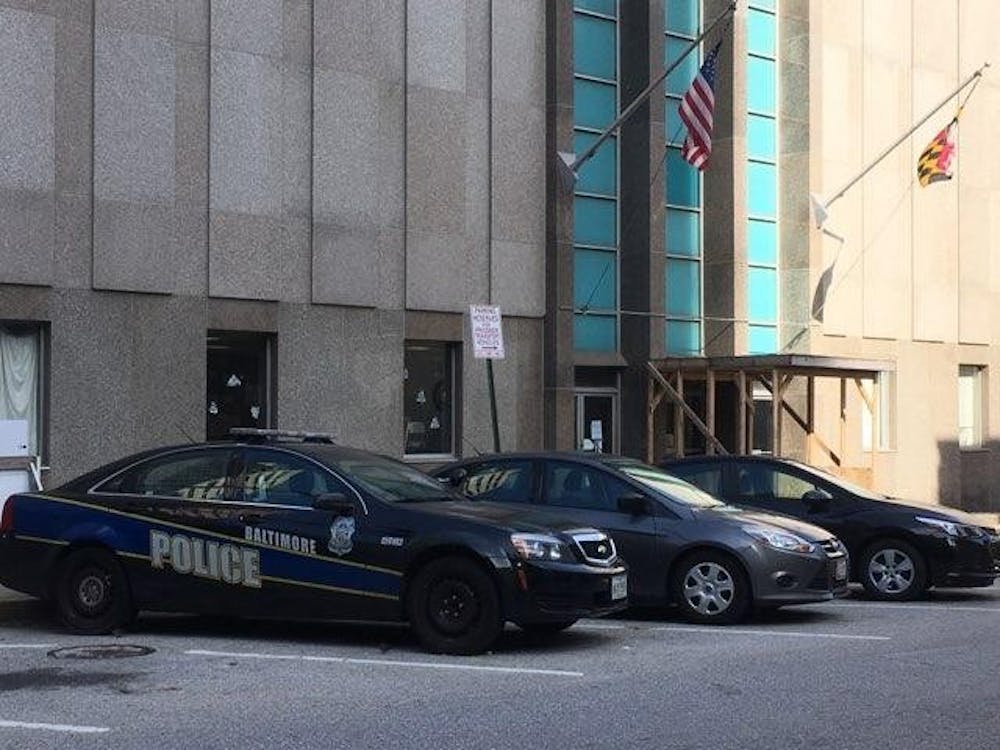Within the last week, the University has launched a social media advertising campaign promoting its proposed private police force on Twitter, Facebook and Instagram. These ads have also been featured on Google.
These sponsored ads follow the introduction of legislation to the Maryland General Assembly that would grant Hopkins the authority to establish its own police force.
The ads feature a variety of statements such as, “Is a Johns Hopkins police department ‘private’ police? No. JHPD would be state-authorized and more accountable to the public than any other police department in Maryland.”
Many people have criticized these ads for inaccurately representing a potential Hopkins police force.
In an email to The News-Letter, Vice President for Communications Susan Ridge explained that the ads began running on Feb. 21. She wrote that the purpose of the ads is to help connect people with the University website, Public Safety Initiatives, where they can find out more information.
“Our goal is to ensure that everyone has access to the facts about what the JHPD proposal is and what a Johns Hopkins police department would look like,” she wrote. “We have provided a lot of information on the website PublicSafetyInitiatives.jhu.edu, such as the interim study, crime data, research studies, maps, and other details. It’s also a place where people can provide important feedback.”
Ridge noted that after ad campaign started, the number of visits to the site has increased.
Emeline Armitage, class of 2018, noted that she saw the ads so frequently that she began taking screenshots of and tweeting about them. While she was surprised when she first saw the ads, Armitage thinks that the University began advertising on social media in order to reach a larger audience in the Baltimore community.
Armitage believes that these ads are indicative of the disparity between the University’s well-funded campaign in support of the private police force and the grassroots movement of the opposition.
“On one side, you have Hopkins, who is paying for these ads. It has professional PR people. Ron Daniels has had private meetings with [Baltimore City] Mayor Pugh before... On the other side you have a grassroots campaign, zero dollar budget, no PR professionals, no one’s funding anything.”
Armitage argued that the grassroots activists were so passionate about preventing Hopkins from developing a private police force, they were able to make an impact without having to spend money on advertising.
“Imagine what the opposition would look like if they had $100,000 to spend,” she said.
Graduate student Corey Payne has also critiqued the ads on his Twitter. He parodied the original ads by editing the text on them to reflect the opinions of opponents to the private police bill.
In an email to The News-Letter, Payne wrote that the ads sponsored by the University are very misleading.
He also felt that similar language was used in the advertisements as President Ronald J. Daniels’ testimony to the Maryland General Assembly on Friday, Feb. 22.
“Johns Hopkins is trying to change the definition of the word ‘private’ to include any activity sanctioned by or accountable to the state,” he wrote.
Payne argued that this was contradictory to previous beliefs about the University creating their own police force.
“Hopkins is a private entity that will be privately-funding an armed police force. It will be overseen by staff hired by that private entity and be accountable, secondarily, to review boards appointed by that private entity and, primarily, to the unelected Board of Trustees. Sorry, President Daniels, you can whine about it all you’d like, but that’s a private police force.”
Payne further criticized the University for using these ads to sway public opinion.
He noted that many are still opposed to a Hopkins private police force even after public forums, where the community was encouraged to engage with administrators about the issue.
He argued that the advertisements would likely be unable to change community members’ minds.
“The fact that, after spending all this money and pushing propaganda forums for a year, they haven’t been able to amass significant support just goes to show how out of touch the Hopkins administration is with the needs of its students and the needs of Baltimore.”





